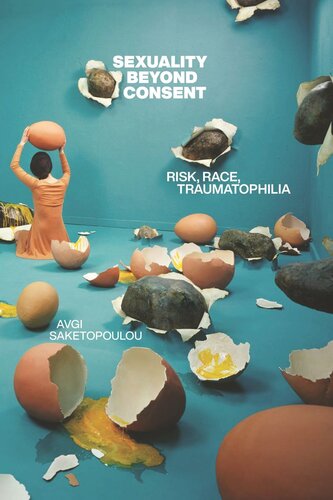

Most ebook files are in PDF format, so you can easily read them using various software such as Foxit Reader or directly on the Google Chrome browser.
Some ebook files are released by publishers in other formats such as .awz, .mobi, .epub, .fb2, etc. You may need to install specific software to read these formats on mobile/PC, such as Calibre.
Please read the tutorial at this link: https://ebookbell.com/faq
We offer FREE conversion to the popular formats you request; however, this may take some time. Therefore, right after payment, please email us, and we will try to provide the service as quickly as possible.
For some exceptional file formats or broken links (if any), please refrain from opening any disputes. Instead, email us first, and we will try to assist within a maximum of 6 hours.
EbookBell Team

0.0
0 reviewsRadical alternatives to consent and trauma
Contemporary discourse on sex and sexuality is fixated on consent as a means of mitigating danger and avoiding forms of sexual trauma. Sexuality Beyond Consent dares us to step into a different territory, where we do not guard the self but risk experience.
Avgi Saketopoulou maintains that we are overly focused on healing trauma and need to reroute our attention to what subjects do with their trauma, in the process taking up a series of provocative questions: Why is sexuality beyond consent worth risking, and how does risk become a way of soliciting the future? Why might surrendering to the fact that your pain is not going away enable you to do things with pain? In what ways are race and racism shot through with the erotic? How can something proximal to violation become a site of flourishing? Central to the transformational possibilities of trauma is a queer form of consent, limit consent, that is not about maintaining control but risks sexuality beyond consent. Moving between clinical and cultural case studies, Saketopoulou takes up theatrical and cinematic works such as Slave Play and The Night Porter, to show us how the force of the erotic surges through the aesthetic domain.
Grounding its arguments in the psychoanalytic theory of Jean Laplanche in conversation with queer of color critique, performance studies, and philosophy, Sexuality Beyond Consent proposes that enduring the rousing of the strange in ourselves, not in order to master trauma but to rub up against it, may open us up to encounters with opacity and unique forms of care.